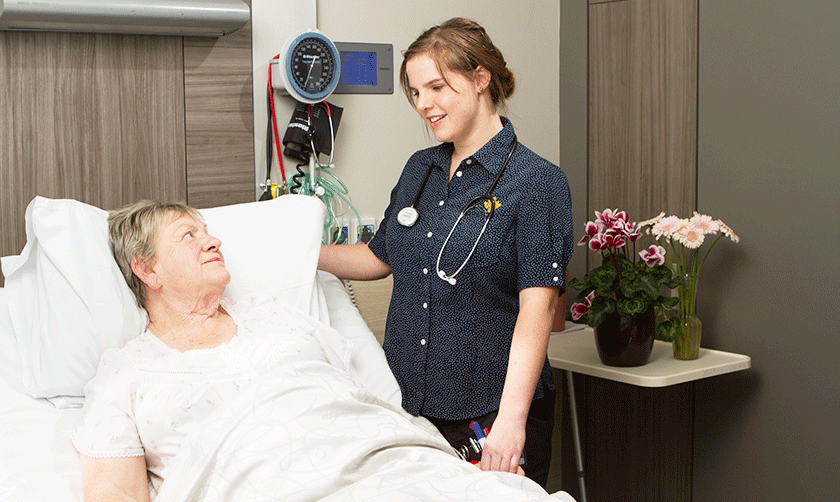- Our services
- Medical and surgical
- Vascular surgery
Vascular surgery

Vascular diseases range from non-life-threatening conditions such as varicose veins through to more serious conditions such as aneurysms and blocked blood vessels to the brain.
Our experienced caregivers are here to support you from admission through to recovery and address any questions or concerns your may have about your vascular surgery.
Vascular services
Our vascular surgeons work with nurses, anaesthetists and other specialists as a multidisciplinary team to provide the highest level of care. Our surgeons perform a range of surgeries from vein surgery through to aortic, carotid and bypass operations.
General anaesthetic is occasionally required for major endovascular cases.
Your surgeon may also use other non-invasive techniques such as ultrasounds and CT scans or MRI scans. Your treating doctor will let you know which investigation and procedure is right for you.
Your recovery
Once your surgery is over, you’ll be transferred to a recovery room or directly to the ward for ongoing observation. We are committed to making your recovery as comfortable and as stress-free as possible.
When you are discharged, your doctors, nurses and allied health practitioners may advise you to make some lifestyle changes such as quitting smoking, changing your diet and managing your medications to ensure you have a plan for returning to optimum health.
Benefits of vascular surgery
Successful vascular surgery can result in:
- improved blood flow and wound healing
- reduced levels of pain and swelling
- reduced risk of stroke and aneurysm rupture
- reduced risk of amputation
- improved levels of mobility
- better quality of life.
These benefits depend on your particular circumstances and require you to fully participate in necessary before and after care and management. You should consult a specialist in this area before deciding whether surgery is suitable for you.
Costs and fee payment options
If you have private health insurance, the costs for your hospital stay and specialist fees may be covered by your health fund, based on your level of cover.
If you don’t have private health insurance, you can access treatment at a St John of God Health Care hospital through our self-funded care option.
When you use your private health insurance, you get benefits that include access to St John of God Health Care private hospital facilities, your choice of specialist, minimal wait times, and with an eligible policy most of your hospital costs can be covered by your private health insurance fund.
You should contact your health insurer to understand your level of cover, and whether your policy is subject to additional fees such as a hospital excess or other ‘out-of-pocket’ expenses. Your health insurer will also be able to assist in understanding if you will have doctor, radiology and pathology out-of-pocket costs.
Patients who don’t have private health insurance can choose to access St John of God Health Care private hospital services and treatments by paying fees themselves.
By accessing our self-funded care option, you’ll be able to avoid wait times and have your surgery or treatment with your choice of specialist at a St John of God Health Care private hospital.
- Learn more and enquire about the self-funded care option.
- Call 1300 940 199 to get a quote for self-funded treatment.
If you have received an invoice for an expense associated with treatment from a St John of God Health Care service you can pay your bill online.
You may be interested in...
Where we provide this service...
